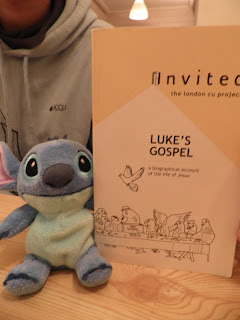Many minor things right, few major things wrong
It is hard to describe my feelings about the show. On one hand I enjoyed the fast-paced action scenes and the redemptive arc of the new Captain America. On the other hand, it is over sympathetic to terror and violence, making it too cringed to watch. Regardless, let me go through the rights and wrongs of the film.
Synopsis
Falcon and the Winter Soldier begins like a buddy cop movie. Both heroes, with little love for each other, are forced to work together for the sake of countering the terrorist group called the Flag Smashers led by a charismatic Karli.
Meanwhile, the mantle of Captain America has been passed down to John Walker, a highly decorated American soldier. This caused further conflict as both Falcon and the Winter Soldier consider themselves the true heirs of Captain America legacy.
To complicate things further, our heroes rope in dubious characters like Zemo and Carter to aid their cause.
The minor rightsAmericans can get along with each other
In half a breather episode, the show portrays the great potential when people from different background works together. This is most prominent when Falcon's neighbours, together with the Winter Soldier, chip in to help out his financial situation.
For a brief moment in time, it reminded me what America is actually like. Race was no issue when it came to helping each other. This ideal echoes the ideal Christian community,
For there is no difference between Jew and Gentile—the same Lord is Lord of all and richly blesses all who call on him -- Romans 10:12
Importance of closure
Another major win is that the series showed that the Winter Soldier struggle with his past. He attempted to right the wrongs by going after the people that manipulated him.
However, he forgot that even such drastic actions failed to redeem him from his past actions. The only way for him to get any closure was to confront his sins and the people he wronged, rather than doing even more deeds. The action has to be relevant to the intention.
This is similar to the Christian concept of forgiveness, where it is not something that we do to redeem ourselves (but rather what Christ has done for us).
In him we have redemption through his blood, the forgiveness of sins, in accordance with the riches of God’s grace that he lavished on us -- Ephesians 1:7-8
The major wrongs
Although the movie gets many things right, it gets major things wrong. This really hindered my enjoyment of the series as it goes ventures slightly into asinine logic.
Activism vs Terrorism
The one of the major flaws of the show is to portray the Flag Smashers as misguided "activists" rather than violent terrorists. This despite the fact that the Flag Smashers killed guards, and Walker's partner Lemar, and attempted to murder the world leaders.
Their aims were also laughable. The Flag Smashers' goals were poorly defined from the start, and their methodology less so. To summarise, they wanted to displaced the people in authority via the use of violence, and that will somehow garner global support for their cause.
I knew it was weird the moment I rooted for Zemo's and Walker's solution to lethally eliminate the Flag Smashers, compared to Falcon's illogical solution.
Falcon's view on politics
Falcon's political speech in the last episode was as childish as Greta Thunberg yelling at the United Nations. He claimed that the reason why the Flag Smashers rose to power was due to the incompetency of the world government.
He basically asks the world government to "do better", and claims that they can "move borders" and "feed a million people" with ease.
Falcon seems to forget that the world government has an impossible task on its plate. Half the world's population had reappeared, and they are trying to solve problems of congestion with limited resources. Basically, you cannot house and feed everyone if you do not have enough buildings or food.
Conclusion: A wasted opportunity
Falcon and the Winter Soldier could have been so much more, but wasted its potential in childish view of politics and activism.
For another take:
Forbes's review









